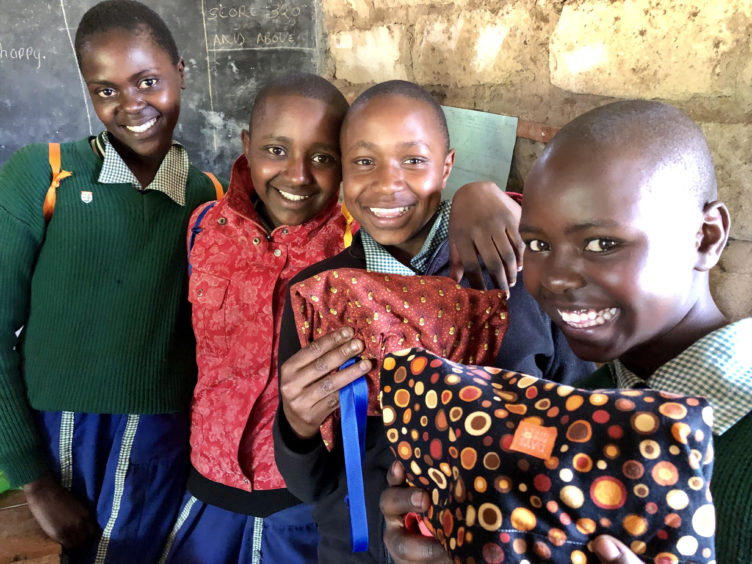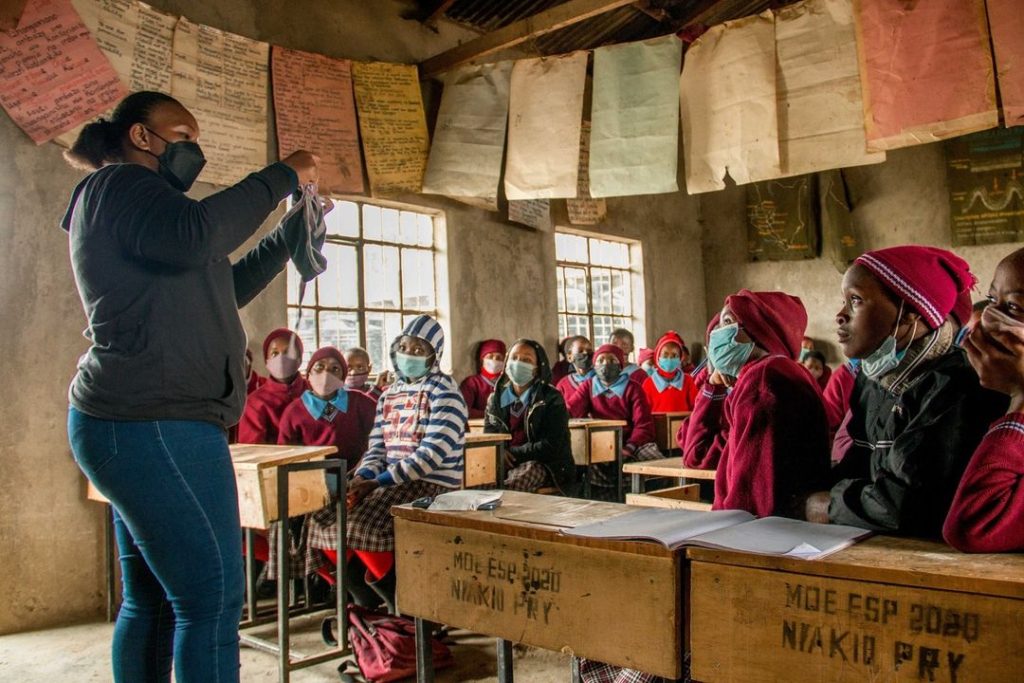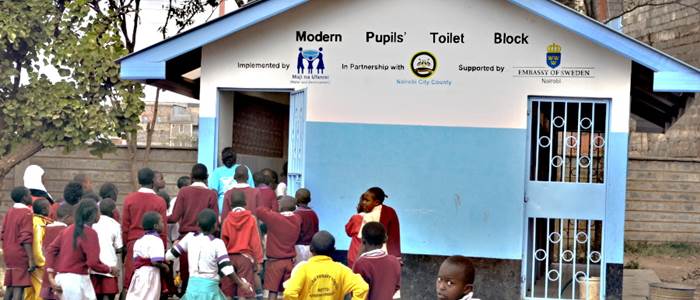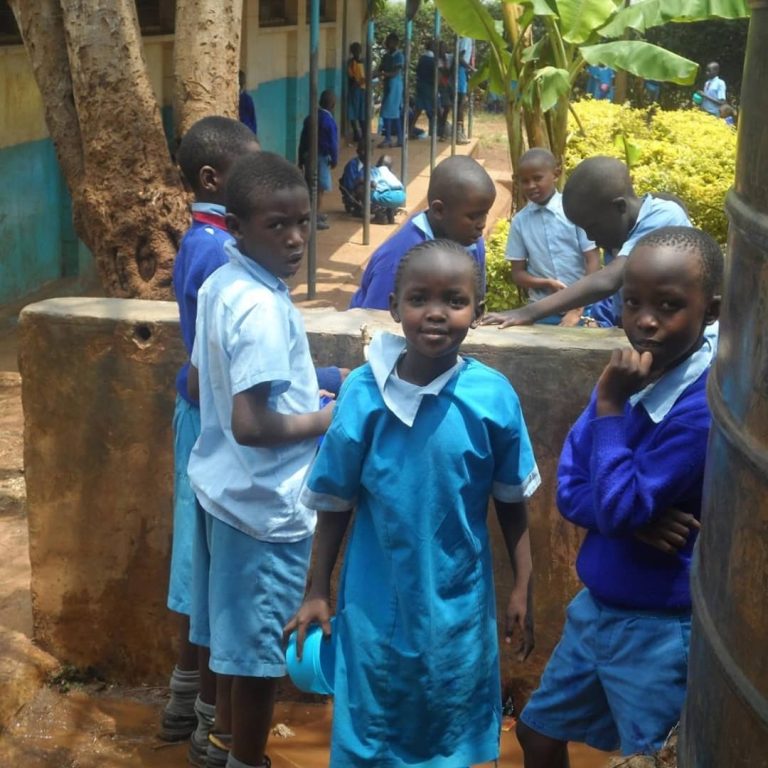Menstrual Hygiene Day, observed annually on May 28th, highlights the importance of good menstrual hygiene management (MHM) and its impact on the lives of women and girls. In Kenya, many girls face challenges during menstruation due to inadequate facilities, lack of sanitary products, and societal stigma. These issues often lead to absenteeism and hinder their educational progress.
In this article, we delve into the pivotal role schools play in addressing menstrual hygiene challenges in Kenya. By providing proper WASH (Water, Sanitation, and Hygiene) facilities, education, and support, schools can become safe havens that empower girls to manage their menstruation with dignity and continue their education uninterrupted.
A Detailed Explanation: The Role of Schools in Menstrual Hygiene Management
The Current Landscape

In many Kenyan schools, especially in rural and informal settlements, the lack of adequate sanitation facilities poses a significant barrier to effective menstrual hygiene management. According to a study, only 60% of schools had handwashing water, and a mere 2% had soap available. Such conditions make it challenging for girls to maintain hygiene during menstruation, leading to discomfort and embarrassment.
Impact on Education
The absence of proper facilities and sanitary products often results in girls missing school during their periods. It’s estimated that one in ten school-aged girls in low and middle-income families in Kenya fail to attend school during menstruation or drop out at puberty due to the absence of menstrual hygiene management facilities. This absenteeism not only affects their academic performance but also their self-esteem and future opportunities.
The Power of Education
Educating both girls and boys about menstruation is crucial in breaking the stigma associated with it. Schools serve as ideal platforms to disseminate accurate information, dispel myths, and foster an environment of understanding and support. Comprehensive menstrual hygiene education should be integrated into the school curriculum, emphasizing that menstruation is a natural biological process.

Infrastructure Improvements
Investing in gender-sensitive WASH facilities in schools is essential. This includes constructing separate toilets for girls, ensuring the availability of water and soap, and providing disposal facilities for sanitary products. Such infrastructure not only supports menstrual hygiene but also promotes overall health and well-being.
Community Engagement
Schools can act as community sensitization hubs, engaging parents, local leaders, and stakeholders in discussions about menstrual hygiene. By involving the broader community, schools can help shift cultural perceptions and encourage collective responsibility in supporting girls during menstruation.
Policy Implementation
While Kenya has policies in place to support menstrual hygiene, effective implementation at the grassroots level remains a challenge. Schools, with support from organizations and government bodies, can play a pivotal role in translating these policies into tangible actions that benefit students directly.
Maji na Ufanisi’s Contribution

Maji na Ufanisi (MnU) has been instrumental in improving WASH services in Kenyan schools. Their initiatives include rehabilitating water systems and building sanitary facilities in primary schools across urban and rural areas. For instance, in Taita Taveta County, more than 3,500 students now enjoy improved sanitation facilities, contributing to better health and school attendance.
MnU’s approach emphasizes community involvement, ensuring that interventions are sustainable and tailored to the specific needs of each school. By focusing on hygiene education, the organization ensures that students are equipped with lifelong habits that promote better health outcomes
Schools have the potential to lead the menstrual hygiene revolution in Kenya. By providing adequate facilities, education, and community engagement, they can create environments where girls feel supported and empowered. Organizations like Maji na Ufanisi play a crucial role in this transformation, demonstrating that with the right resources and commitment, we can break the cycle of menstrual stigma and absenteeism.
FAQs
1. Why is menstrual hygiene important in schools?
Proper menstrual hygiene ensures that girls can attend school comfortably and confidently, reducing absenteeism and promoting equality in education.
2. What challenges do Kenyan schools face regarding menstrual hygiene?
Many schools lack adequate sanitation facilities, access to sanitary products, and comprehensive menstrual education, leading to challenges in managing menstruation effectively.
3. How does Maji na Ufanisi support menstrual hygiene in schools?
MnU rehabilitates water systems, builds sanitary facilities, and provides hygiene education in schools, ensuring students have the resources and knowledge to manage menstruation.
4. What role does education play in menstrual hygiene management?
Education dispels myths, reduces stigma, and equips students with the knowledge to manage menstruation healthily and confidently.
5. How can communities support menstrual hygiene in schools?
Communities can engage in open discussions, support infrastructure development, and collaborate with schools and organizations to provide resources and education.
6. Are there policies in Kenya supporting menstrual hygiene in schools?
Yes, Kenya has policies aimed at improving menstrual hygiene, but effective implementation at the grassroots level remains a challenge.
7. How does poor menstrual hygiene affect girls’ education?
It leads to absenteeism, reduced academic performance, and, in some cases, dropping out of school, hindering their educational and personal development.
8. What are gender-sensitive WASH facilities?
These are sanitation facilities designed to meet the specific needs of all genders, ensuring privacy, safety, and accessibility, especially for menstruating girls.
9. How can schools become community sensitization hubs?
By engaging parents, local leaders, and stakeholders in discussions and activities that promote awareness and support for menstrual hygiene.
10. What is the broader impact of improving menstrual hygiene in schools?
It promotes gender equality, enhances educational outcomes, and contributes to the overall health and well-being of students and communities.



